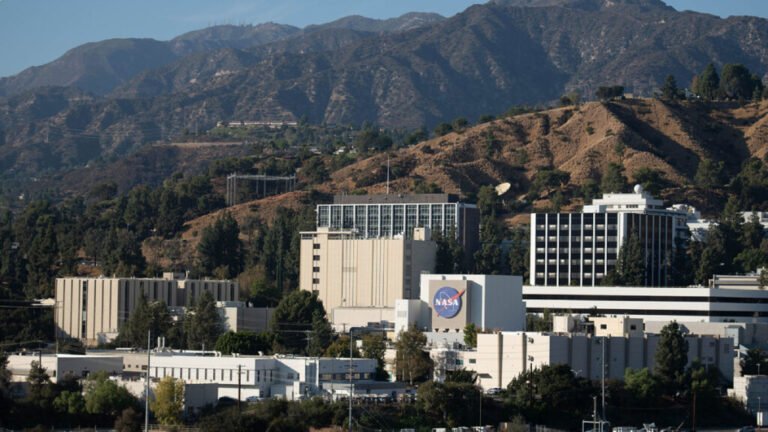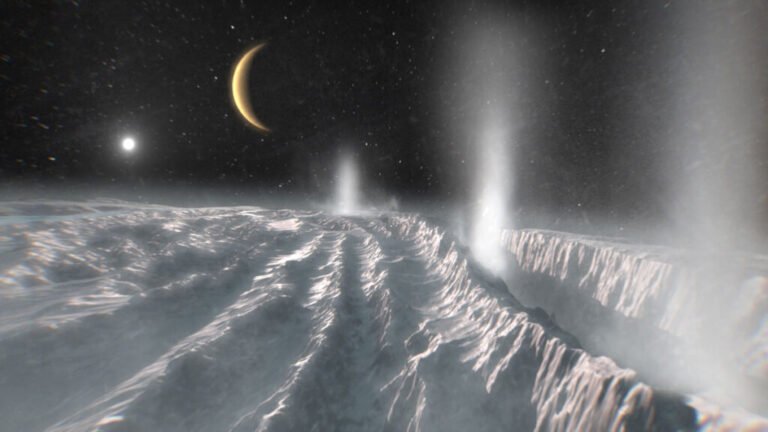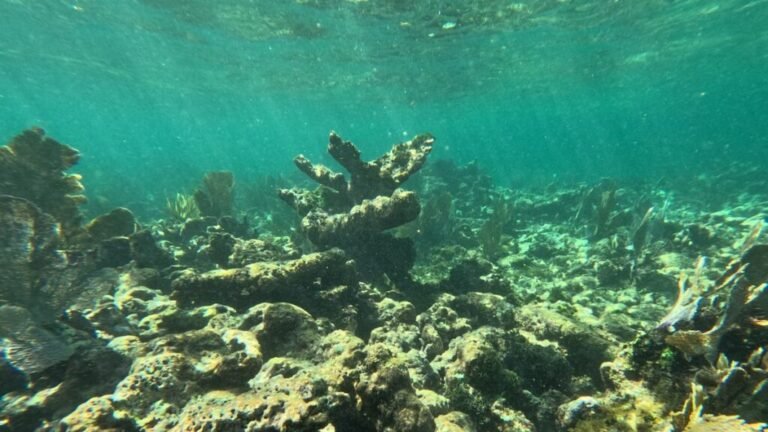
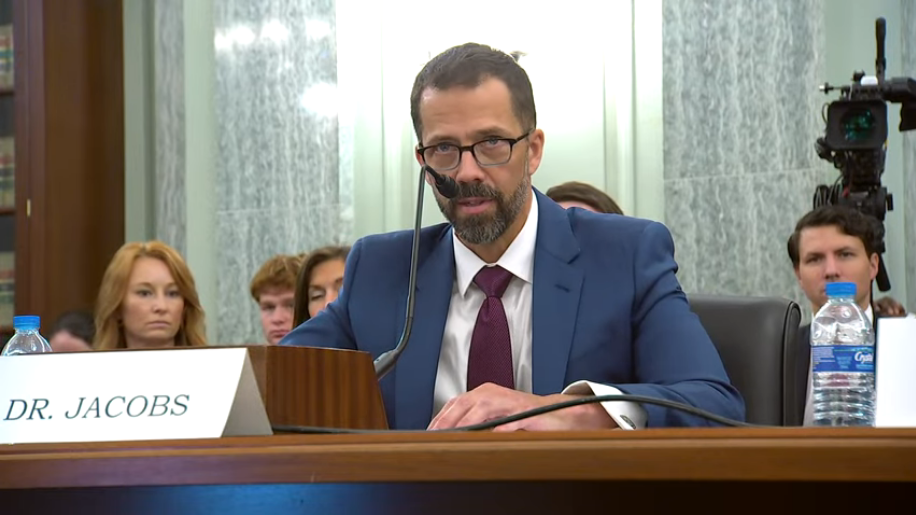
Research & Developments is a blog for brief updates that provide context for the flurry of news regarding law and policy changes that impact science and scientists today.
Meteorologist and atmospheric scientist Neil Jacobs was confirmed as the new leader of NOAA on Tuesday evening.
Jacobs has a PhD in atmospheric science and worked in weather monitoring before joining NOAA in 2018.
But Jacobs is perhaps most well-known for his role in “Sharpiegate.” In 2019, during his first term, President Trump claimed that Alabama was in the path of Hurricane Dorian. After the claim met pushback, the president held a press conference and showed members of the media a map of the hurricane’s path that had been altered with a Sharpie, and NOAA issued a statement backing Trump’s claim.
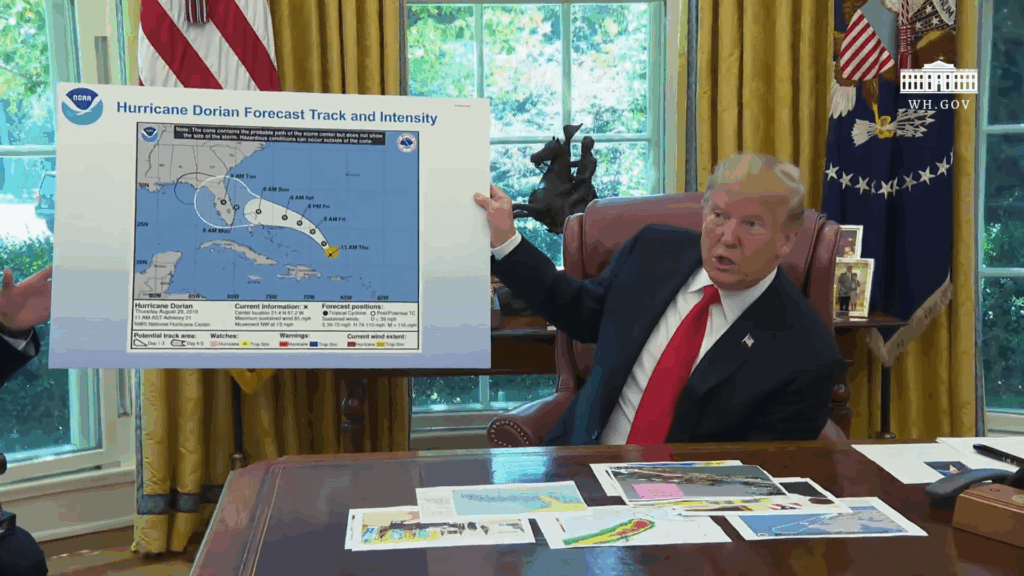
At the time, Jacobs was the acting NOAA administrator, and had approved the unsigned statement. A National Academy of Public Administration report later found that his involvement with the statement violated NOAA’s scientific integrity policy.
At Jacobs’ confirmation hearing in July, he said that, if a similar situation arose in the future, he would handle it differently. He also said he supported proposed cuts to NOAA’s budget, and that his top priorities included staffing the National Weather Service office, reducing the seafood trade deficit, and “return[ing] the United States to the world’s leader in global weather forecast modeling capability.”
Related
• Roll Call Vote 119th Congress – 1st Session
• Senate Confirms ‘Sharpiegate’ Meteorologist to Lead NOAA
• 4 takeaways from Trump NOAA nominee’s confirmation hearing
• US Weather Boss During ‘Sharpiegate’ Nears Return to a Shrinking Agency
• We Watched Neil Jacobs’ Confirmation Hearing for NOAA Administrator and Are Concerned About What We Heard
• Get Involved: AGU Science Policy Action Center
Jacobs made no mention of climate change in his opening statement. When asked whether he agreed that human activities are the dominant cause of observed warming over the last century, he noted “that natural signals are mixed in there” but that “human influence is certainly there” too.
The Senate voted 51-46 to confirm Jacobs, in a session during which they also confirmed a cluster of attorneys and ambassadors (including former NFL star Herschel Walker as ambassador to the Bahamas).
Carlos Martinez, a senior climate scientist at the Union of Concerned Scientists, expressed concern in a statement published before Jacobs’ confirmation hearing.
“Despite his relevant expertise and career experience, Dr. Jacobs has already demonstrated he’s willing to undermine science and his employees for political purposes as he did during the infamous ‘Sharpiegate’ scandal,” Martinez wrote.
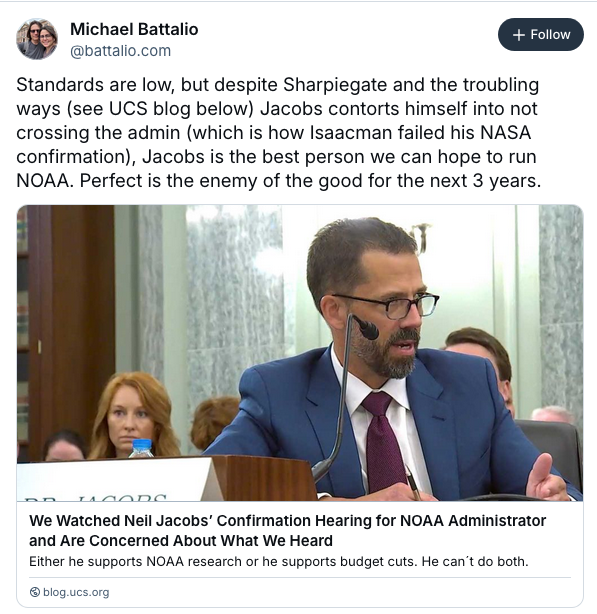
Others were more cautiously optimistic, noting his experience as a scientist. “It could be worse,” noted one Redditor. “He’s an actual atmospheric scientist and a known quantity.”
“I’m hopeful that he’s learned how to fight within the political system — because he is going to have to fight,” former NOAA administrator Rick Spinrad told Bloomberg in August.
—Emily Gardner (@emfurd.bsky.social), Associate Editor
These updates are made possible through information from the scientific community. Do you have a story about how changes in law or policy are affecting scientists or research? Send us a tip at eos@agu.org.

Text © 2025. AGU. CC BY-NC-ND 3.0
Except where otherwise noted, images are subject to copyright. Any reuse without express permission from the copyright owner is prohibited.
